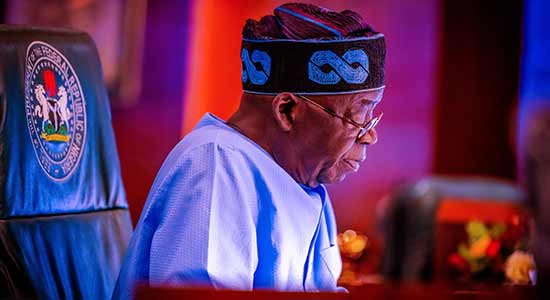On April 3, 2024, it was announced that electricity tariffs would undergo a staggering 300 per cent increase. This move came as part of a series of reforms spearheaded by President Bola Ahmed Tinubu aimed at alleviating the economic strain following the removal of oil subsidy in 2023.
However, the decision was met with widespread criticism, particularly due to the nation’s longstanding struggle with erratic power supply.
With frequent power outages plaguing the country’s infrastructure, many citizens heavily rely on backup generators to mitigate the effects of these disruptions. In such a context, the perceived value of electricity becomes difficult to gauge, further exacerbating the discontent surrounding the tariff hike.
Following the removal of subsidy, Nigerians across the country have been forced to either cut their spending on basic goods or accept the inevitable price increase. Even for those for whom the rising price of goods is still within affordability, it is not uncommon to find sellers using shortcuts to remain competitive or keep up with demand despite the rising price of all their goods.
- NIGERIA DAILY: The Actual ‘Role’ Of NNPP In Ganduje’s Suspension by APC
- Nasarawa outlawed ethnic vigilantes surrender uniforms to police
It comes as no surprise that there is a common sentiment that the government thrusts heavy burdens on the populace while its officials refuse to forgo any of their own personal expenses.
During these difficult times, it is necessary to lead by example and Mr President must take deliberate strides to ensure that both he and his appointees project strength and integrity by cutting unnecessary spending. If the state intends to justify its higher cost of service then Nigerians are obliged to expect more in return.
The removal of subsidy does not mean the removal of any and all forms of price control. Essential goods and services should still receive a degree of support to reduce the pressure on citizens and small businesses. This is especially important in underserved communities that are not receiving enough support to bounce back from the price hikes.
There should also be wage increases to ensure that workers’ incomes keep pace with inflation. This helps maintain purchasing power and prevent a steep decline in the standard of living for workers and their families.
There should always be a clear expectation of performance from our politicians and it is the president’s duty to set a clear framework of accountability that ensures everyone knows what is expected of him. To this end, we will also need the government to step in.
Additionally, the state should coordinate with the central bank to implement appropriate monetary policies to control inflation while minimizing adverse effects on economic growth.
A notable initiative undertaken by President Tinubu was the implementation of a three-month travel ban for ministers, beginning on April 1, aimed at curbing unnecessary expenditures on lavish trips. This move signifies a positive step forward, as it underscores the principle that politicians should not be exempt from experiencing the same hardships as ordinary Nigerians.
If government officials are unwilling to adjust their extravagant lifestyles, there is no justification for citizens to bear the brunt of economic burdens alone. Leadership entails leading by example, and the attitudes and actions of leaders should mirror the realities faced by the populace, and vice versa.
Transparency in decision-making processes and proper oversight of departmental activities are also critical components of accountability. By ensuring that decisions are made openly and with the public interest in mind, the president can prevent corruption, mismanagement and abuse of power within the cabinet.
Robust oversight mechanisms help ensure that cabinet members are held answerable for their actions and decisions, further enhancing accountability.
We are currently in the 11th month of Tinubu’s presidency and it is clear that there is still a need to take significant steps to distinguish himself from his predecessors. He will need to lead by example and a good way to accomplish this will be by surrounding himself with people who exemplify the values and aspirations of this country.
With the rising cost of electricity and the price of all basic services rising alongside the removal of fuel subsidy, there is a need for government spending to take a cut as well.
In order to project fiscal responsibility, luxury spending on expensive items and contractual benefits will need to be cut and if not there should be a requirement for the government to document these expenses and give adequate justification for them.
Accountability begins from the top and President Tinubu must lead by example by showing accountability in his actions and decisions. By setting a standard of integrity, honesty, and responsibility, the president sets the tone for the entire administration and inspires confidence in their leadership.
In conclusion, holding not only the members of his cabinet accountable but creating an environment with zero tolerance for corruption is essential for effective governance and public trust. By establishing clear expectations, conducting regular performance reviews, fostering open communication, setting goals and targets, implementing accountability mechanisms, ensuring transparency and oversight, and leading by example, the president can effectively hold his cabinet accountable and ensure that they are working towards the collective goals and interests of the administration and the nation.
Ibrahim wrote from Abuja

 Join Daily Trust WhatsApp Community For Quick Access To News and Happenings Around You.
Join Daily Trust WhatsApp Community For Quick Access To News and Happenings Around You.


